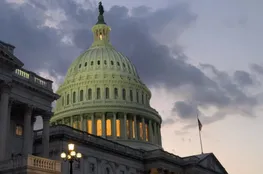The recent years have indeed been challenging for American small business owners, yet there is optimism on the horizon. While President Joe Biden often speaks of boosting the economy "from the bottom up and the middle out," his government’s policies have adversely impacted small businesses—the vital core of America’s economic engine. Small businesses make up nearly half of the private-sector jobs in the United States, a number that continues to grow as these businesses have created almost two-thirds of all new jobs since 1995. Unfortunately, the Biden-Harris administration's costly new regulations and rules pose significant threats by strangling these businesses and, consequently, the millions of families who rely on them.
A particular case of regulatory burden occurred in April when the Department of Labor unilaterally altered employment conditions for salaried workers. The government increased the overtime threshold from $35,568 to $58,656 over two stages. This change obligates small business owners to essentially treat salaried employees like hourly employees for those earning below the threshold, requiring exhaustive tracking of hours and overtime pay calculations. This shift undermines the original purpose of salaried work, where compensation aligns with job responsibilities rather than hours spent, challenging employers to consistently find effective ways to manage costs.
Some may raise salaries, leading to increased service or product prices, while others might convert workers to hourly wages, potentially reducing pay rates or hours to manage expenses. Further complicating matters is the Corporate Transparency Act (CTA), which Biden supports as a step toward outsourcing national security and fraud prevention to the private sector. This act affects approximately 32 million business entities by imposing onerous compliance demands under the threat of severe penalties. Fines or even imprisonment await entrepreneurs failing to provide new detailed personal information to the Treasury's Financial Crimes Enforcement Network.
While larger corporations can afford extensive lobbying and campaign funding, small businesses often lack such resources and face severe challenges in keeping up with such bureaucratic requirements. Meeting even a seemingly simple obligation of reporting a change in a beneficial owner’s details becomes fraught with difficulty. Despite these challenges, there is renewed hope through policy changes advocated by Donald Trump's campaign, aimed at boosting small businesses and their employees. Proposing the elimination of taxes on overtime, Trump’s plan could tremendously boost productivity, allowing businesses greater flexibility in staffing.
His administration aims to dismantle outdated regulations and add only essential ones, enhancing operational efficiency and reducing administrative load. Furthermore, extending the Tax Cuts and Jobs Act could fortify the financial standing of small businesses. Amid difficult times, future governmental plans offer a potential path for significant positive change. Julio Gonzalez, founder of Engineered Tax Services, passionately hopes for such changes to reinvigorate the entrepreneurial spirit that fuels America’s economy, reflecting his views on these pressing matters. The coming period holds promise, bringing potential enhancements that could significantly benefit the small business landscape in America.
























